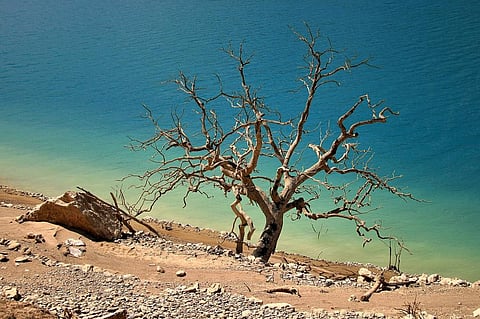

Spain and Senegal led 30 countries and 20 organisations to launch the International Drought Resilience Alliance (IDRA) November 7 at the 27th Conference of Parties (COP27) to the United Nations Framework Convention on Climate Change (UNFCC) at Sharm El-Sheikh.
The alliance will help each other to be better prepared for future droughts. The group also pledged to drive change in how the world tackles the growing drought risks: Moving from emergency response to building long-term resilience.
Drought represents the most serious hazard to livestock and crops in nearly every part of the world. It ranks among the greatest threats to sustainable development, especially in developing countries, but increasingly so in developed nations too.
Recent episodes have shown that droughts are hitting more often and harder than before, up nearly by a third since 2000. Climate change is expected to cause more severe droughts in the future.
Droughts have increased in frequency by 29 per cent since 2000, with around 55 million people affected every year, according to the latest’ Drought in Numbers’ report compiled by the United Nations Convention to Combat Desertification (UNCCD).
The 2022 droughts in Europe, United States, Australia, Chile, the Horn and southern Africa, showed that no country or region is immune to their impacts.
The alliance is significant as there is no global convention for land, other than UNCCD, which mostly focuses on desertification. The alliance is now being seen as a ‘specific solution’ for the United Nations to the impacts of climate change.
The coming together of the 30-country alliance is an effective grouping to make drought resilience a priority in national development and share technology and expertise with each other.
“When the State is in danger, when it is destabilised in any way, the foundations of the community make way for chaos. We all — governments, citizens and civil society — have an obligation not to saw off the branch we are sitting on,” said Senegal President Macky Sall.
Political commitments, including a five million Euro (Rs 40.76 crore) seed fund by Spain, to support the alliance’s work and mobilise more resources, bolstered the agenda. President of Kenya William Ruto made a commitment to plant five billion trees in the next five years and 10 billion trees in 10 years.
“We are only as resilient to climate change as our land is. Building resilience to drought disasters is the way to secure the gains we make on each sustainable development goal, particularly for the most vulnerable people,” Presidents Pedro Sánchez Pérez-Castejón of Spain and Macky Sall declared in a joint communication.
The mission of the alliance is to give political impetus to make the land’s resilience to drought and climate change a reality by 2030, they added.
Drought-generated economic losses from 1998 to 2017 were about $124 billion (Rs 1,011.57 crore) across the world, not to mention the cost of human suffering and lives.
The IDRA was first announced by Spain at the 77th session of the UN General Assembly in September 2022, to be officially launched at the UNFCCC.
The alliance will also collaborate with other platforms, including the initiative launched by the United Nations Secretary-General and the World Meteorological Organization to achieve universal coverage of early warning systems and regional initiatives to reap the maximum benefits of working together on drought resilience.